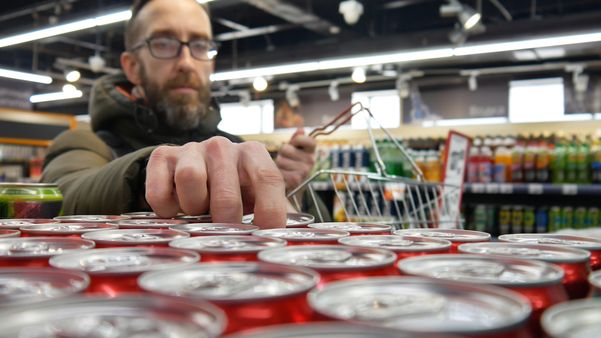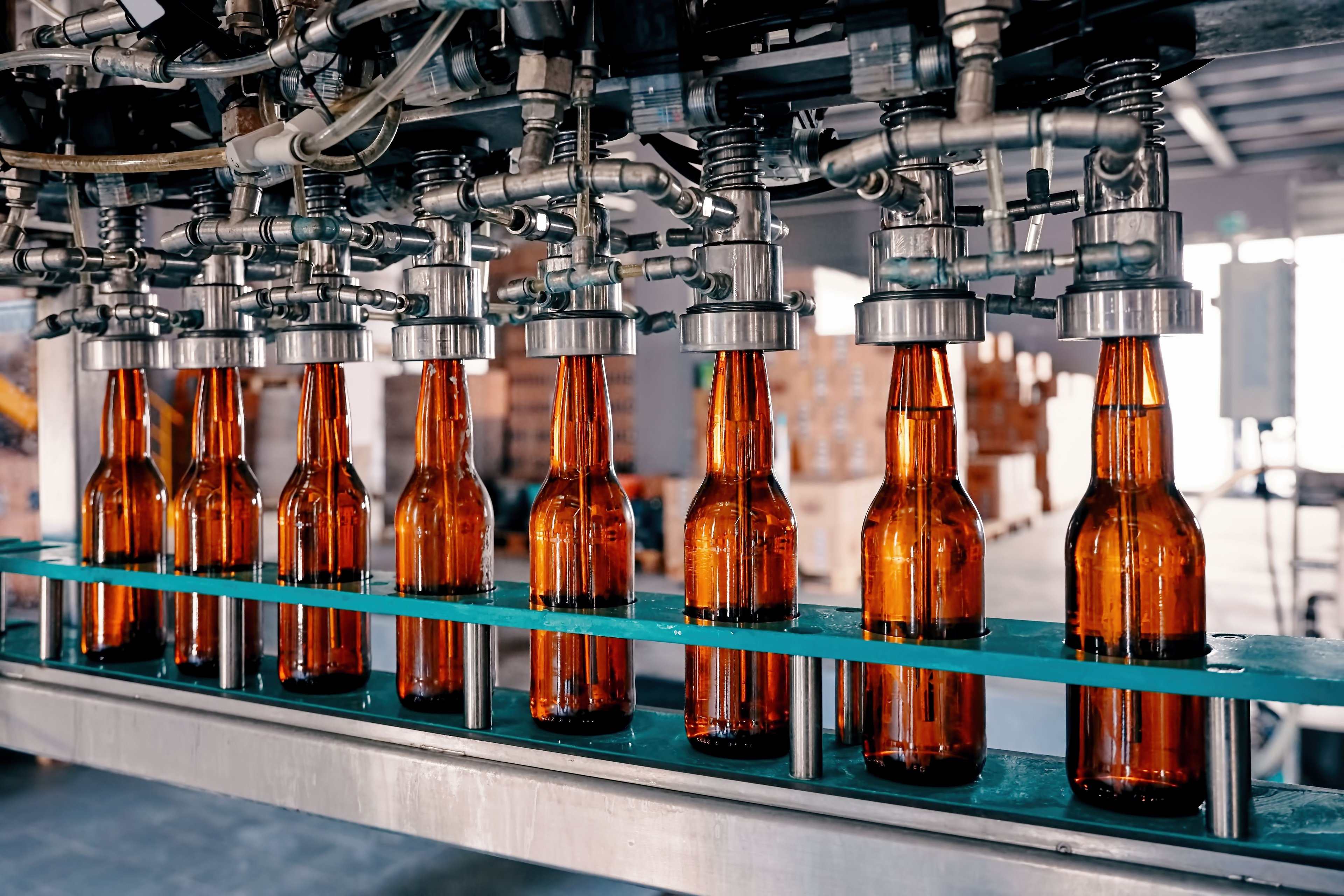As food and beverage combinations go, it's tough to argue with pizza and beer, so it's fitting that Boston Beer (SAM 4.31%) and Domino's (DPZ 2.15%) reported their earnings on the same day this week. But after that moment of synchronicity, the stories diverge a bit. Because while America's leading piemaker is still expanding on all fronts, it failed to hit its lofty targets, and the market reacted accordingly. Meanwhile, the craft brewer is outpacing forecasts and, more importantly, offering an even more enthusiastic outlook.
In this Market Foolery podcast, host Chris Hill and senior analyst Emily Flippen discuss the key points investors need to know from those companies' latest reports and consider where they are headed. They also answer a listener question about whether Facebook (FB 0.04%) is undervalued today.
A full transcript follows the video.
Check out the latest Domino's and Boston Beer earnings call transcripts.
This video was recorded on Feb. 21, 2019.
Chris Hill: It's Thursday, February 21st. Welcome to Market Foolery! I'm Chris Hill. Joining me in studio, Emily Flippen in the house. Thanks for being here!
Emily Flippen: I'm looking forward to our conversation today!
Hill: We're going to dip into the Fool mailbag, yes we are. We're going to talk pizza and beer. We're also coming to Austin, Texas, next week, and we've got some details on that.
Let's start with the pizza, Domino's. I guess the fourth quarter was not what Wall Street was expecting because on the surface, this looks like a good quarter. You tell me, was there too much expected? Is Domino's Pizza, because it's performed so well for so long, is it now in that category where unless they absolutely crush it, then we're going to see days like today, where it's like, "Well, this was a good quarter, but we wanted perfect, therefore your stock's down 10%."
Flippen: Well, management kind of shot themselves in the foot with this one. They projected same-store sales growth of 6-8%. Came in a bit below that. Set some lofty revenue and earnings targets, missed on both of those lines. So it's not a surprise to see the negative reaction. But you're right. They still had same-store sales growth of 5.6%. I mean, gosh, they're selling pizza! It's impressive! They're continuing to open new stores, majorly in international locations. A lot of that growth in the future I think is going to need to come from their international sales, which have lagged behind U.S. sales. Believe it or not, the U.S. really likes our pizza. It's time for the international stores, foreign countries, to step up to the game here.
Hill: It's interesting, Patrick Doyle did such a great job running Domino's Pizza for the decade or so that he was the CEO. Off the top of my head, I can't name who the current CEO is. I'm wondering if what we're seeing today with the stock selling off is maybe a learning moment for them in terms of setting expectations. Among the number of ways that Patrick Doyle did a good job of running Domino's Pizza, one of them was managing expectations. You don't really get bonus points for setting lofty goals and saying them out loud to Wall Street analysts.
Flippen: [laughs] Well, the new CEO, whose name is also escaping me, his strategy is a concept he's calling fortressing. I think you can probably guess at what it is -- building a lot of Domino's in central locations, essentially running out the competition by having the shortest, fastest delivery times. So, you might have three Domino's in your vicinity. They're making sure that you're getting your pizza ASAP. A lot of people were concerned moving into this strategy that, "Hey, you're going to cannibalize a lot of your pizza sales. I'm not sure how happy your franchisors are going to be when the new franchise opens up down the streets."
But they have some good examples of where it's working internationally. Did a great job expanding in India with this strategy. The question is whether or not it's going to continue to post the same impressive growth that we've seen historically, or if Domino's is really just playing themselves.
Hill: Among other things, I can just hear the gnashing of teeth of people on our editorial team, and probably at least a couple of our listeners who studied English, the whole turning a noun into a verb, fortressing. I'm not even really that gifted when it comes to the ways of the editorial dark arts, but that's one of those where I'm like, "Really? Fortressing? That's what we're calling this?'
Flippen: Well, they would hate me, then.
Hill: Let's move on to Boston Beer, which is having a much better morning. Shares up 11%. This is the parent company of Sam Adams. Fourth-quarter profits looked good. If you're just looking at the results, it seems a little mixed because the profits were good, the overall sales were a little bit down. But this seems like it's, among other things, about their guidance. Speaking of lofty guidance, they're pretty confident about how 2019 is going to go for them.
Flippen: It's interesting because the craft brew market for a while now has been softening. In fact, the beer market in general is softening in comparison to liquors and wine. I like the idea that Boston Beer is not only continuing with what they're known for, which is the craft brew -- because a lot of times, we see demand for these things change over time, and just because they're going through a soft period right now does not mean that craft brew is done forever.
I think the reason they've posted such impressive guidance and revenue is largely due to the optionality that they have of their different brands. They're moving into things like hard teas. A new health fitness craze they're pursuing is kombucha, alcoholic kombucha, targeting these fitness and health and wellness communities with different brands that you wouldn't normally associate with Sam Adams. It's exciting. It's exciting that they've seen all these different opportunities, and they're still posting amazing growth for their hard cider division as well.
Hill: I just like that they're targeting the health and fitness community by saying, "Hey, here's this drink. To make it even healthier, we've added some alcohol."
Flippen: How about this? One of their new brands is going to be 26.2 Brew. That's targeted at the running community. After you get done with your marathon, sit down with your 26.2 Brew.
Hill: [laughs] We'll see how that goes. I mean, all kidding aside, the guidance, if they deliver on it, is very impressive. Basically, what they came out and said was, "We're looking at shipment growth in 2019. We're looking at price increases in 2019 as well. We're going to ship more beer and we're going to charge more for it." If they can do that, then yes, that absolutely justifies what we're seeing with the stock today.
Flippen: Yeah, and their depletions growth -- which sounds bad, but it's actually a good thing when you look at the beer market, it's the rate at which the beer is leaving the distributor's warehouse for the target consumer -- that's been increasing significantly for the company, almost back to their heyday in 2013. So far, they seem to be posting guidance in line with what their expectations are.
Hill: Our email address is [email protected]. Question from Ben Miller in Lawrence, Kansas. He writes, "I listen every day. Great show!" Thank you, Ben! "I own nine stocks with a heavy position in Facebook. It's at $162 a share right now. Do you think it is significantly undervalued like I do?"
Great question! If Ben thinks it's undervalued at $162, then he definitely thinks it's undervalued today at $160, down a little bit from when he sent his email.
Let's put the business aside for a second. When you just look at Facebook the stock, do you think it's undervalued?
Flippen: I don't think I'd go as far as to say significantly undervalued. I would say that the pullback we're seeing, I think, makes it an attractive buy at this time.
Hill: Are you a Facebook shareholder?
Flippen: I am actually not a Facebook shareholder, but I am a last remaining vestige of a Facebook user. Once my parents moved onto the platform, I realized that, at least around my social circles, it was dead. They post occasionally and say, "Post on Facebook those photos from your vacation so your grandma can see," and I do. It's a sticky platform for the users that still exist on it. I think that's probably why it's so undervalued right now. If you're an advertiser, Facebook users are very sticky, the international growth is still strong even though it's lagged down here in the U.S. But the idea that, if you're trying to advertise, you really have no other option at the moment other than to go to one of Facebook's many platforms says a lot about the company.
I have concerns. We all have concerns about the privacy, the regulatory environment, even the culture coming out from the management team. But I think when push comes to shove, Facebook is in a position where it's extremely strong for what's really driving both its top and bottom lines. From an investing perspective, that's probably the most important issue.
Hill: You touched on something that I think is really important when thinking about Facebook's business. It's the way in which Facebook serves advertisers. I have a little bit of understanding about this simply from talking to the marketing folks here at The Motley Fool. Facebook, beyond the fact that they have this massive platform with all these people on it, they do a great job reaching out to advertisers, serving advertisers, making it very easy to use their platform. So, in the same way that we talk about a payment platform like Venmo and how easy it is to use Venmo -- so easy that someone who's not great with technology like me can very easily use Venmo -- Facebook makes it really easy for advertisers to use their platform, and that should never be discounted.
Flippen: And it's effective advertising, which is arguably even more important than the price. You can put ineffective ads wherever you want over the internet, but if the banners become background noise to the users, it provides no value to you. Facebook advertising has been proven to be continuously effective in driving clicks and driving people to those advertisers' websites. That to me tells you everything you need to know about Facebook at this time.
Hill: As I mentioned at the top, we are coming to Austin, Texas, next week. We have a Motley Fool member event. I, Emily Flippen, our man behind the glass Dan Boyd, and about 30 other Fools are going to be in Austin, Texas, and we're going to be having a listener meetup on Wednesday, February 27th. E-mail us, [email protected], if you're in the Austin area or you're going to be in the Austin area. E-mail us, we will send you all the details. Hope we can hang with some listeners for a little bit.
Flippen: Yeah!
Hill: Emily Flippen, thanks so much for being here!
Flippen: Thanks for having me!
Hill: As always, people on the program may have interest in the stocks they talk about, and The Motley Fool may have formal recommendations for or against, so don't buy or sell stocks based solely on what you hear. That's going to do it for this edition of Market Foolery. The show is mixed by Dan Boyd. I'm Chris Hill. Thanks for listening! We'll see you next week!








